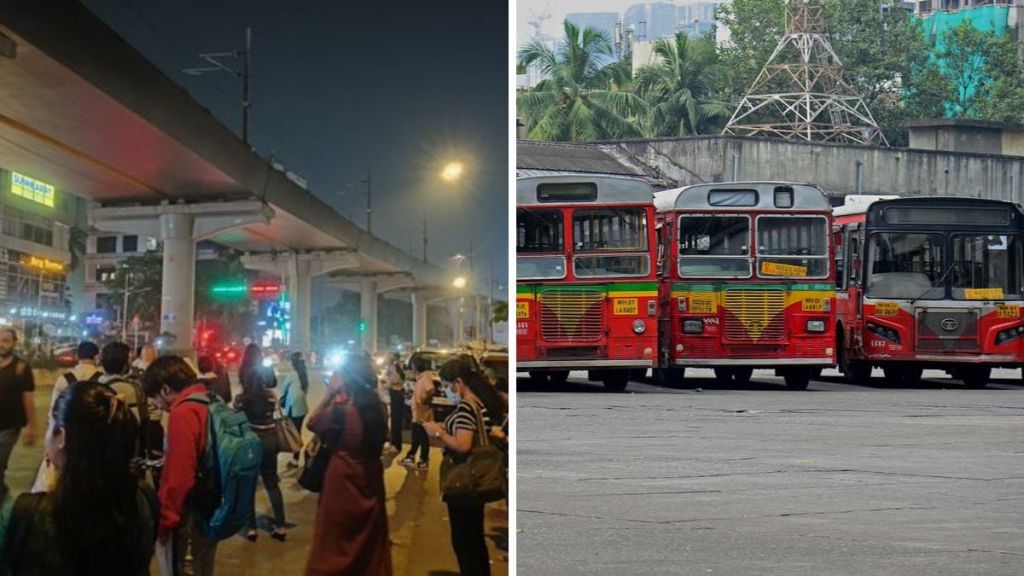
Mumbai: The city's public transport system, once heavily reliant on the iconic BEST buses, is currently struggling due to a shrinking fleet and increasing dependency on wet-lease buses. Once the lifeline for city commuters, the BEST bus service has seen a steady decline in its original fleet size, impacting thousands of daily riders who are now experiencing frequent service disruptions.
X User Shares Frustration
Recently, a commuter named Balram Vishwakarma highlighted these issues on social media platform X, describing his frustrating experience at the Laxmi Industrial Estate Bus Stop on Andheri West Link Road. Arriving at 7:11 pm, Vishwakarma waited over 15 minutes without a single bus arriving despite the increasing crowd at the stop. By 7:22 pm, the number of waiting passengers had grown, yet buses were still absent, while three metro trains passed by on the nearby Ghatkopar-Andheri line.
I spent 20 minutes at a bus stop on one of the busiest roads in Mumbai today. I can say with utmost confidence that they're killing BEST buses. Stood in line at Laxmi Industrial Estate Bus Stop (Andheri West Link Road) at 19:11HRS. Thread pic.twitter.com/Z9Ncn8OWzG
— Balram Vishwakarma | बलराम विश्वकर्मा (@Balram1801) November 5, 2024
When a bus finally arrived at 7:25 pm, it was packed to capacity, with some passengers dangerously hanging on to its doors. Vishwakarma managed to board a second bus at 7:28 pm, but he expressed his frustration with the state of BEST services, lamenting, “They’ve killed the BEST service.”
Constant Disruptions In Wet-Lease Bus Services
The city’s reliance on wet-lease buses, managed by private operators, has been a double-edged sword. Although these buses help fill the gap in public transportation, their operation has been unstable. Recently, 280 BEST mini-buses were taken off the road, further worsening the situation.
Additionally, the wet-lease bus services were temporarily disrupted in August when drivers from the Daga Group went on strike. The protest, initially sparked by an altercation between a wet-lease bus driver and a starter, soon expanded to include demands for better pay, Diwali bonuses, and additional leave. For two days, services from the Deonar depot were partially suspended due to the strike.
Mumbai’s population of around 2 crore demands an extensive public transit network, requiring at least 3,337 buses to meet daily commuter needs. However, the BEST fleet has declined by approximately 1,000 buses, leaving only 2,000 wet-lease buses to operate across the city.